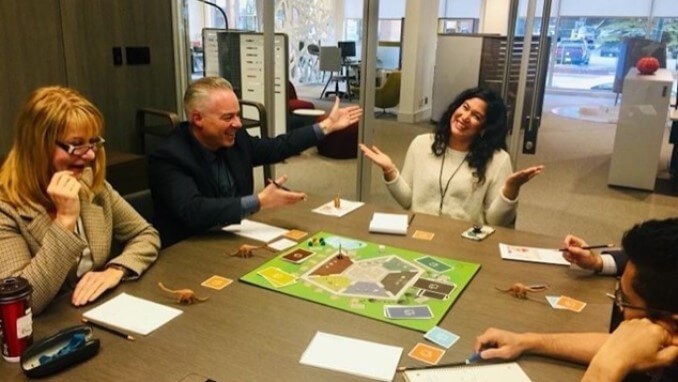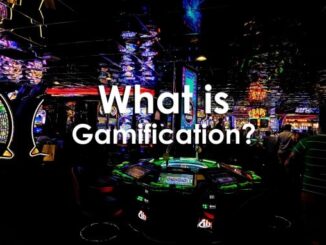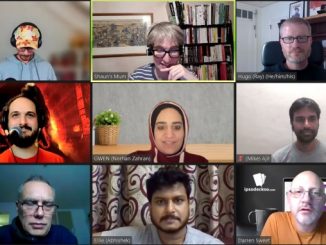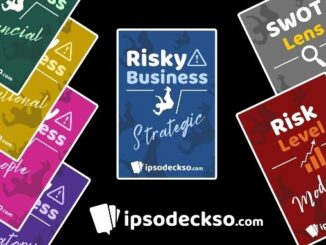
A Motivational Board Game for Team Development
Sometimes the best ideas are born when people start to think outside the box and conventional patterns swop places with extraordinary ways of thinking.
Unsurprisingly, companies try to get the very best out of their teams. Most of them use traditional team building workshops, aiming to solve problems with a positive experience. Yet, without the essential foundation for a successful team in place, the team lacks motivation to continue the process after the intervention. At Groundwork we saw an opportunity to approach this gap in a slightly different way to kick-start a team development process, a board game. Whilst including work on the development of core competencies, we aimed at a focus on learning, creating a safe space and facilitating the drive to develop as a team also beyond the actual game. We went for a board game because we wanted the players to sit around a table and have direct and personal interactions, which present an essential element for every team for their effectiveness and success.
Gathering inspiration by several studies (a.o. Kolb & Kolb 2012; Bober 2010; Mekler, Brühlmann, Tuch & Opwis 2017) that substantiate the motivation generated through gamification and serious play, our aim was to create a business learning game which motivates the team to discover, explore and develop key skills for highly successful teams. All whilst maintaining a playful and fun way and ensuring relevance for their everyday work. The core skills, which are based on a theoretical framework by Daniel Coyle (2018) and adapted by Groundwork, are: establish purpose, create belonging, share vulnerability, stimulate creativity and build safety. The result is called “Lord McGroundwork’s Teamcastle”, created by Thomas Lahnthaler and Thomas Kayer of Groundwork.
One of the key recurring topics during the development of the game was how to capture the interest and motivation of any team playing the game. We focused on some key areas:
Context. Part of the secret to engagement lies in the context we created and how the different elements play together. When the team enters the world of “Lord McGroundwork’s Team Castle”, based in the highlands of Scotland by an enigmatic lake, the players are tasked to get to the top of the castle in order to release the team spirit. They will be captured for around four hours, forgetting their smartphones and the real world around them. Guided by “a butler”, who represents the mysterious Lord McGroundwork, a group of four to six players will be confronted with multiple exciting short challenges, demanding leadership from everyone. Working their way through five different rooms of the castle, each representing one of the five essential skills, will help your team to become the best version of itself.
“I was a bit skeptical about the idea of a board game for team development, but I have never done anything where I learned more about myself and our team. And it was so much fun!” Creative designer, PR-Company

Incentives. The tasks are all designed with a little narrative that relate to the context the team is in, the world of the McGroundworks. The short challenges, whose difficulties is determined by the team leader of each round, and the immediate rewards when successfully completed accompanied by short messages from Lord McGroundwork himself play into different psychological phenomena creating the urge and motivation to want to play the next challenge.
Individual vs. collective. Simultaneously to the team discovering and reflecting the skills in the different rooms, they are also playing as individuals and can win by being the most successful leader. This dual motivation presents an interesting twist and point of reflection for what motivates the individual players. The key detail is that you can only be successful as a leader if your team is successful, which requires strategic thinking by each player. In order to avoid conflict, the team members decide on the price for the winner beforehand, while the team reward is presented by “the butler”.
Game dynamics. The process to develop this game was at least as exciting as watching it being played and seeing the effect it has. Before the game had its current shape, format, rules and content, we tested repeatedly and integrated feedback to refine the game dynamics and the technical elements to ensure that the participants do not lose interest or motivation at any state, and if this happens, the game provides a way to get them back into play smoothly.
This business learning game will take you out of your comfort zone and subsequently force you to reflect on your way of thinking and behaving, individually and collectively. At the end, after releasing the team spirit on the top of the castle, the team gets the opportunity to transfer new learnings about the core skills into their daily work and everyday life through a facilitated reflection by “the butler”.
“The potential of this game is limitless, we played four hours and time just flew by. Can’t wait to play again and take away even more from it.” Team leader, IT-company
This game-based solution provides a perfect, safe and motivational kick-off to a team development process. The combination of learning a new theoretical framework, become closer as a team and reflect over in which ways the team can work more effectively together presents a great foundation for the next steps in order to grow and continuously develop. It opens their minds for team development as a long-term process and finally establish purpose, create belonging, share vulnerability, stimulate creativity and build safety.
References
Allam, A., Sutton, M.J.D. (2017). Gamification, serious games, simulations, and immersive learning environments in knowledge management initiatives. World Journal of Science, Technology and Sustainable Development, Vol14(2/3), p.78-83.
Coyle, D. (2018). The Culture Code. The Secrets of Highly Successful Groups, New York: Bantam Books.
Bober, M. (2010). Games Based Experiences for Learning, Futurelab, Bristol.
Kolb, A.Y., Kolb, D.A. (2012). Experiential Learning Theory, in: Seel, N.M. (Ed), Encyclopedia of the Sciences of Learning, New York: Springer, p.1215-1219.
Kolb, A.Y., Kolb, D.A. (2010). Learning to Play, Playing to Learn: Case Study of a Ludic Learning Space. Journal of Organisational Change Management, Vol. 23, p.26-50.
Mekler, E.D., Brühlmann, F., Tuch, A.N., Opwis, K. (2017). Towards understanding the effects of individual gamification elements on intrinsic motivation and performance. Center for Cognitive Psychology and Methodology, University of Basel, Switzerland, Computers in Human Behavior, 71 (2017), p.525-534.
- Lord McGroundwork’s Team Castle - 11th March 2020
- Lord McGroundwork’s Team Castle - 11th March 2020





Be the first to comment